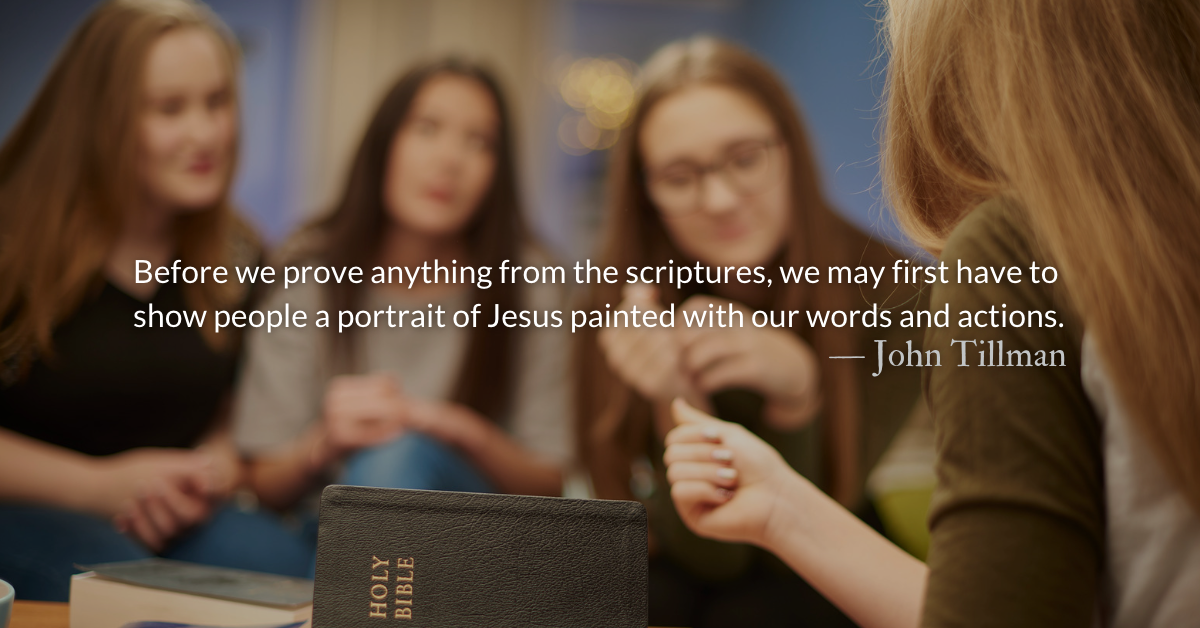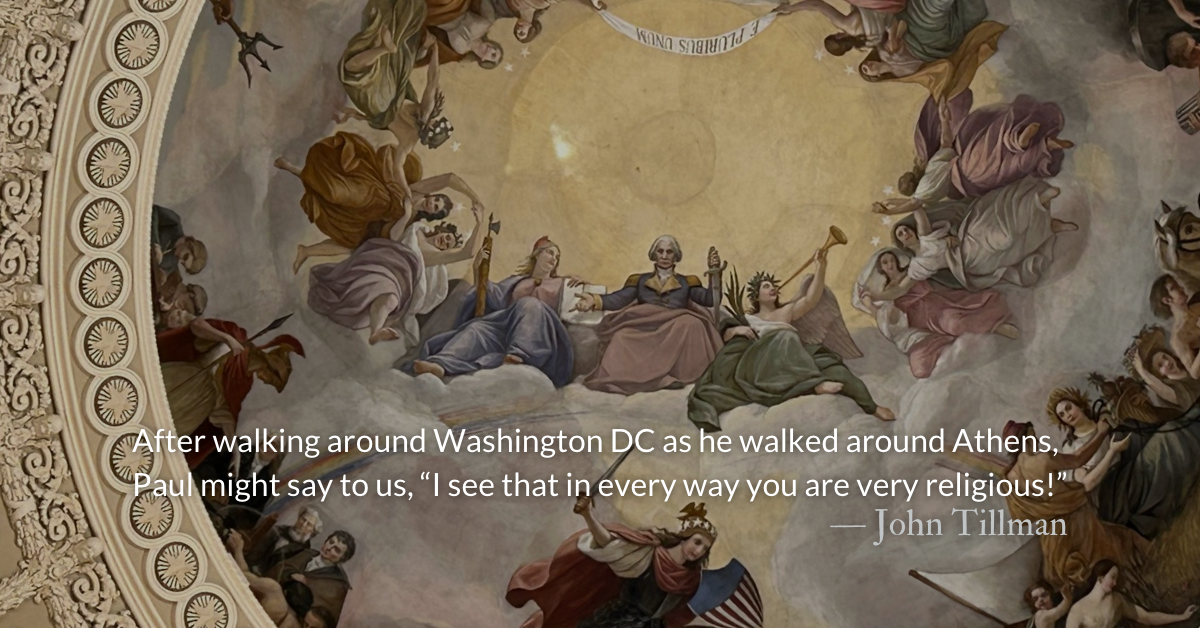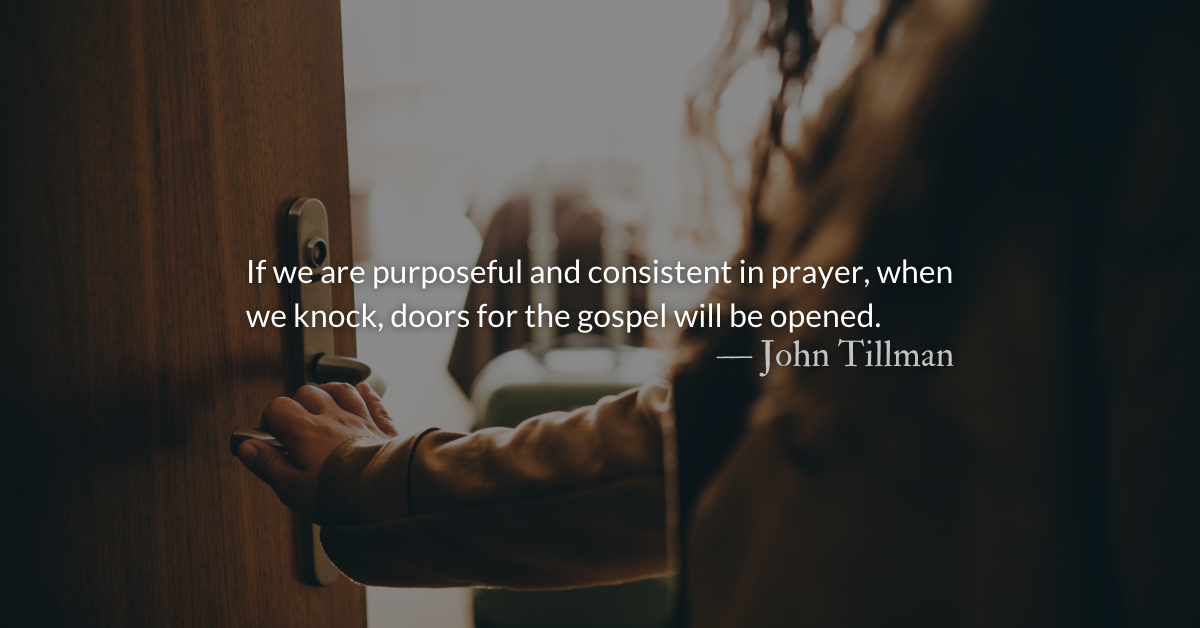Scripture Focus: Acts 20.4-6
4 He was accompanied by Sopater son of Pyrrhus from Berea, Aristarchus and Secundus from Thessalonica, Gaius from Derbe, Timothy also, and Tychicus and Trophimus from the province of Asia. 5 These men went on ahead and waited for us at Troas. 6 But we sailed from Philippi after the Festival of Unleavened Bread, and five days later joined the others at Troas, where we stayed seven days.
Reflection: None Excluded or Excused
By John Tillman
Paul was rarely alone and rarely did his work alone.
In Acts 18, we see that a group of believers accompanied Paul. Many of them are representatives from the communities he has just visited. Believers from Berea, Thessalonica, and Asia, as well as others, joined Paul. They left their own cities and situations to travel and work with Paul, taking the gospel to other communities.
We can sometimes forget that Paul’s ministry was never a one-man show. Seven of the thirteen “Pauline letters” open saying, “from Paul AND…” Paul and Sosthenes sent 1 Corinthians. Paul and Timothy sent 2 Corinthians, Philippians, Colossians, and Philemon. Paul, Timothy, and Silas sent 1 and 2 Thessalonians.
Bible nerds debate whether these men were co-authors or scribes or letter carriers. To me, it seems scribes and letter carriers were typically mentioned at the end, not at the beginning and co-authorship does not threaten the quality of the letters or their authority or inspiration. Paul is, undeniably, the main voice but what the others might have contributed is a fun topic to think about.
More important than the question of co-authorship is recognizing the importance of teamwork in Paul’s ministry. If we have an idea of ministry as a top-down power structure, we’ve misread the book of Acts and Paul’s letters. We need to reimagine what ministry looks like in our heads.
People often talk about “red flags” when visiting churches but when we first visited our current church, we saw a “green flag.” Instead of saying, “I’m the lead pastor” or “the senior pastor” or even “the teaching pastor,” the pastor said, “I’m one of the pastors at this church.” Those other phrases wouldn’t be sinful and would all be truthful. But consistently referring to himself as a collaborative leader was a sign of good things.
For Paul, ministry was collaborative. Paul’s ministry team included all races, men and women, young people and elders, slaves and free, rich and poor. Paul brought others with him because he valued them and their contributions. Not only was no one excluded from sharing the gospel, no one was excused from doing so.
Are you one of those sharing the gospel? Who are you bringing along? Who are you collaborating with? Who is learning from you and from whom are you learning?
Are you collaborating through funding, preaching, prophesying, serving, writing, traveling, or other means?
Divine Hours Prayer: The Greeting
Your testimonies are very sure, and holiness adorns your house, O Lord, forever and forevermore. — Psalm 62.6
– From The Divine Hours: Prayers for Springtime by Phyllis Tickle.
Today’s Reading
Leviticus 24 (Listen 2:58)
Acts 20 (Listen 5:22)
Read more about Embrace Your Mission
Paul’s mission brought others together and molded diverse people into unified disciples.
Read more about Facing Wolves
In hunting for “wolves” we can injure a lot of sheep. People who hunt wolves often become wolf-like themselves.











